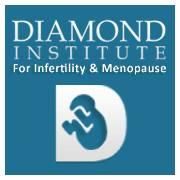What Causes Infertility?

For some women, becoming pregnant can be difficult. About 10% of women ages 15 to 44 across the U.S. struggle with infertility. Knowing what can cause fertility problems can help you understand treatment options and allow you to begin planning how to expand your family. Below are four of the main causes of fertility troubles in women.
4 Common Causes of Infertility
1. Pelvic Inflammatory Disease
Pelvic inflammatory disease, or PID, occurs when an infection (usually an STI) spreads to your reproductive organs, such as your uterus, ovaries, and fallopian tubes. It causes swelling and damage to your reproductive organs, impacting your chances of getting pregnant. It may not always cause symptoms, going unnoticed for a long time. When it does cause symptoms, they include fever, pelvic pain, bleeding, discharge, and discomfort during sex. Treatment options for getting pregnant depend on which organs have been affected, but can include having a surrogate or using in vitro fertilization (IVF).
2. Polycystic Ovarian Syndrome
Polycystic ovarian syndrome (PCOS) refers to the development of fluid-filled sacs on your ovaries, preventing the normal release of eggs. The causes aren’t known, but treatments include lifestyle changes and targeted medicines to improve your fertility, while reducing symptoms like excess hair and acne growth. An IVF procedure is a viable option for becoming pregnant with this condition, as it doesn’t affect your uterus—just your ovulation.
3. Endometriosis
 When the cells that make up your uterine lining begin to grow outside of the uterus, it’s considered endometriosis. Some women that have it don’t experience symptoms, but those who do experience pain in their pelvis, with sex, and during menstruation. The only way to diagnose the condition is by undergoing minimally-invasive surgery to take a sample of tissue and confirm that uterine cells are growing on other organs. While it’s not necessarily life-threatening, it does contribute to infertility, with up to half of infertile women being diagnosed with it. Surgery and medications can limit pain and may increase your chances of getting pregnant by freeing your reproductive organs of binding tissue.
When the cells that make up your uterine lining begin to grow outside of the uterus, it’s considered endometriosis. Some women that have it don’t experience symptoms, but those who do experience pain in their pelvis, with sex, and during menstruation. The only way to diagnose the condition is by undergoing minimally-invasive surgery to take a sample of tissue and confirm that uterine cells are growing on other organs. While it’s not necessarily life-threatening, it does contribute to infertility, with up to half of infertile women being diagnosed with it. Surgery and medications can limit pain and may increase your chances of getting pregnant by freeing your reproductive organs of binding tissue.
4. Premature or Early Menopause
When your ovaries stop producing enough estrogen, or stop regular ovulation before you’re 45 years old, it’s referred to as premature (below age 40) or early (aged 40-45) menopause. Symptoms include hot flashes, irritability, irregular periods, lack of libido, discomfort during sex, and a lack of natural lubrication in your vagina. It reduces your chances of getting pregnant, but it doesn’t entirely eliminate it. Hormone replacement therapies and IVF treatment are viable options to increase your chances.
If you’re concerned about infertility, reach out to the Diamond Institute for Infertility & Menopause in Millburn, NJ. For over 40 years, these compassionate physicians have helped women and couples expand their families with effective fertility treatments. Led by doctors Matan Yemini and Ndidiamaka Onwubalili, this center offers services including egg freezing, IVF procedures, surrogate carriers, hormone treatments, and intracytoplasmic sperm injection (ICSI). View their services online and call (973) 761-5600 to schedule a fertility consultation.
About the Business
Have a question? Ask the experts!
Send your question

